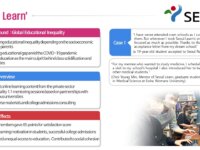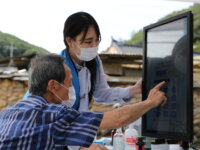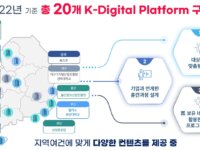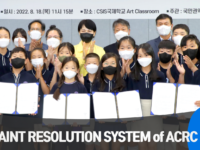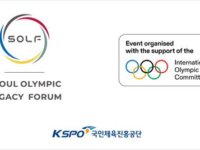'Seoul Learn' is a project that provides equal educational opportunities to the vulnerable population that has difficulties in accessing educational resources due to socioeconomic reasons. Educational inequality in Korea has been identified as the main culprit behind generational poverty. The project offers various educational services via public platforms to prevent education from causing inequalities.
Case Study Library
Where innovations are collected and shared to disseminate and replicate good ideas

Innovations:
0
This website, as well as any data and map included herein, are without prejudice to the status of or sovereignty over any territory, to the delimitation of international frontiers and boundaries and to the name of any territory, city or area.
Since its inception in 2020 for the purpose of realizing a digitally inclusive society, the Digital Competency Center Project has been providing digital competency training for citizens to enjoy the benefits of digital technologies and services as their lives and socioeconomic activities are rapidly digitalized. Thanks to the innovation, any person in Korea can visit their local Digital Competency Center for a free, hands-on training programmes to foster skills for using mobile or digital…
Aware of the ongoing digital transformation and user needs, HRDKorea (Human Resources Development Service of Korea)partnered with the private sector to leverage industry-leading technology for the creation of the Mobile National Technical Qualification Service. The certificate layout was fully reconfigured to fit the smartphone environment and used blockchain technology to develop a service that now allows users to immediately access their certificates on their mobile phones. The previous model…
The Intergovernmental Network and Competition for regulatory reform was designed to provide a driving force for regulatory reform and for mutual learning between local governments. It moves away from existing top-down regulatory innovation and rather motivates bottom-up regulatory reform policy, enables mutual learning of best practices, and allows local governments to benefit. Also, the final beneficiaries of the Network are citizens and businesses, as when regulatory innovation increases, so…
The Korean government recently piloted the K-Digital Platform (KDP) to enhance national digital literacy and foster manpower suitable for digital convergence as digital transformation and low-carbon economy transition accelerated in all areas of the labor market. This is to strengthen the digital capabilities of various consumers, including workers, young job seekers, and the self-employed, and to preemptively and systematically respond to structural changes in future industries.
South Korea’s National Ombudsman Institution, Anti-Corruption and Civil Rights Commission (ACRC) is the only public agency in the country that handles all civil collective complaints against governments. ACRC’s collective complaint resolution effectively coordinates and mediates complicate large-scale complaints and suggests alternatives agreed by all parties. The system protects citizens from the infringement of rights and interests and prevents the occurrence of social conflicts.
Plastics used in ships are occasionally dumped at ocean, or even if they are collected at ports, all of them are incinerated. YGPA crack down on plastic dumping at ocean and collect waste plastics from ships. And the plastics are processed into recycled polyester yarn. Since this yarn is made of ocean bound plastic, apparel makers rush to buy the yarn and make clothes with it. Through this project, we protect the environment and create added values and jobs in the process of recycling plastics.
KSPO has created the SOLF, Seoul Olympic Legacy Forum as a platform where Olympic legacy entities from all around the world gather for the first time to share and collaborate on sustainable development plans for the Olympic Legacy. Through the SOLF, Olympic legacy entities communicated and cooperated with each other to solve the long-term social problems after the Olympic games and to deliver intangible legacy of Olympic spirit and world peace to future generations.
Seocho-gu is the first district in Korea to offer a service like the “Seocho BookPayback Service” (hereafter, “BookPayback”), which reduces the waiting time for popular library books. A full refund is provided for a book purchased from a local bookstore that is returned (to the bookstore) within three weeks, after which the book is sent to a library in Seocho-gu. It is an innovative library service that allows residents to use library resources whenever needed, regardless of time or…
The Carbon-Free Island JEJU by 2030 (CFI 2030) policy aims to transform Jeju into a carbon-free island by 2030. It is the first project in the world to target an area with a population of over 500,000 and has been ongoing since 2012. Home to the UNESCO-designated Biosphere Reserve (2002), World Natural Heritage Site (2007), and Global Geopark (2010), Jeju strives towards a carbon-neutral future utilizing state-of-art technology including renewable energy, EV, smart grids, and microgrids.

